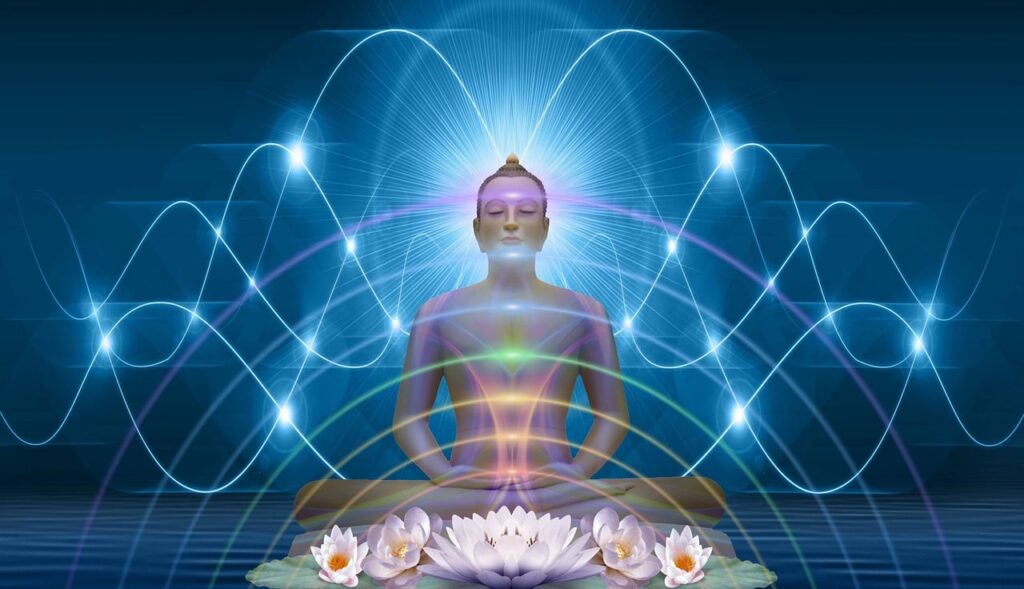Have you ever wondered about the concept of Karma Yoga and what significance it holds in our lives? Karma Yoga, also known as the path of selfless action, is a spiritual practice that emphasizes the importance of performing one’s duties without attachment to the outcome. By understanding the true essence of Karma Yoga, we can find fulfillment and inner peace through our actions, making a positive impact not only on ourselves but also on the world around us. In this article, we will explore the depths of Karma Yoga and uncover its profound significance in our journey towards self-realization.

Definition of Karma Yoga
Meaning of Karma Yoga
Karma Yoga is a spiritual path or discipline that emphasizes selfless action as a means to attain spiritual growth and liberation. The term “Karma” refers to the actions and deeds performed by an individual, while “Yoga” denotes union or connection with a higher power or consciousness. Hence, Karma Yoga can be understood as the path of selfless action performed with the intention of serving others and aligning oneself with a higher purpose.
Origin of Karma Yoga
Karma Yoga has its roots in ancient Hindu philosophy and is deeply ingrained in the cultural and spiritual traditions of India. The concept of Karma is mentioned in Hindu scriptures such as the Bhagavad Gita and the Upanishads, which date back thousands of years. It is believed that Karma Yoga was initially introduced to guide individuals on the path of self-realization and enlightenment.
Concept of Karma in Hinduism
In Hinduism, the concept of Karma is central to understanding the principles of Karma Yoga. Karma is the cosmic law of cause and effect, which states that every action performed by an individual has consequences, either in this life or in future lives. According to Hindu philosophy, one’s current circumstances and future destiny are determined by their past actions. Karma Yoga teaches individuals to be mindful of their actions and to perform them selflessly, without attachment to the outcomes.
Principles of Karma Yoga
Selfless Action
The core principle of Karma Yoga is the performance of selfless actions. This means engaging in actions without any personal agenda or expectation of reward or recognition. Karma Yogis strive to act with pure intentions, focusing on serving others and contributing to the well-being of the world. By practicing selfless action, individuals purify their intentions and cultivate a sense of compassion and empathy towards others.
Detachment from Fruits of Action
Another important principle of Karma Yoga is the cultivation of detachment from the fruits of action. This means not being driven by desires for personal gain, success, or recognition. Karma Yogis understand that they are not in control of the outcomes of their actions, and thus, their focus remains solely on the action itself, rather than being attached to the results. By letting go of attachment, individuals free themselves from the burden of expectations and experience inner peace and contentment.
Renunciation of Ego
Karma Yoga teaches the renunciation of ego or the sense of “I” and “mine.” It encourages individuals to let go of the egoic attachments and identifications that cause suffering and separation. By surrendering the ego, Karma Yogis acknowledge the interconnectedness of all beings and recognize the divine presence within themselves and others. This renunciation of ego leads to a deeper sense of unity and harmony with the world.
Teachings from Bhagavad Gita
Karma Yoga in Bhagavad Gita
The Bhagavad Gita, a sacred Hindu scripture, extensively discusses the principles and practice of Karma Yoga. In the Gita, Lord Krishna imparts wisdom to the warrior Arjuna, emphasizing the importance of selfless action and the performance of one’s duty without attachment to the results. He teaches that Karma Yoga is a path to spiritual growth and liberation, stating, “You have the right to perform your prescribed duty, but you are not entitled to the fruits of your actions.”
Importance of Righteous Action
The Bhagavad Gita also emphasizes the significance of performing righteous actions. It teaches that individuals should act in accordance with moral values, dharma, and contribute positively to society. By engaging in actions that are ethical and compassionate, individuals not only uplift themselves but also create a harmonious and just world. The Gita emphasizes that the true nature of a person is reflected in their actions and urges individuals to align their actions with their higher self.
Attaining Spiritual Liberation
According to the teachings of the Bhagavad Gita, practicing Karma Yoga leads to the ultimate goal of spiritual liberation or moksha. By performing selfless actions, detaching from the outcomes, and renouncing the ego, individuals can gradually liberate themselves from the cycle of birth and death and attain union with the divine. The Gita emphasizes that the path of Karma Yoga is accessible to all individuals, regardless of their social status or occupation, making it an inclusive and universal spiritual practice.
Benefits of Practicing Karma Yoga
Purification of Mind and Heart
One of the significant benefits of practicing Karma Yoga is the purification of the mind and heart. By engaging in selfless actions, individuals cultivate positive qualities such as love, compassion, and kindness. The act of serving others without any expectations helps individuals let go of negative emotions like greed, jealousy, and anger. This purification of the mind and heart brings about inner peace, joy, and a deep sense of fulfillment.
Development of Selflessness
Karma Yoga plays a crucial role in the development of selflessness. By consistently practicing selfless action, individuals learn to prioritize the well-being of others above their own desires. This selfless attitude fosters a sense of interconnectedness and empathy towards all beings. It expands one’s capacity to experience and express love, generosity, and compassion, leading to a more harmonious and compassionate world.
Elimination of Selfish Desires
Through the practice of Karma Yoga, individuals can gradually eliminate their selfish desires and attachments. By focusing on the action itself rather than the outcomes, individuals learn to appreciate the present moment and let go of cravings for personal gain or recognition. This liberation from selfish desires brings a sense of freedom and contentment, allowing individuals to live in alignment with their higher purpose and experience inner joy.

Comparison with Other Yogas
Karma Yoga vs. Jnana Yoga
Karma Yoga can be contrasted with Jnana Yoga, the path of knowledge and wisdom. While Karma Yoga emphasizes selfless action, Jnana Yoga focuses on the pursuit of knowledge and the realization of one’s true nature. Karma Yogis believe that selfless action is the means to spiritual growth, whereas Jnana Yogis seek to attain liberation through the direct realization of their true self.
Karma Yoga vs. Bhakti Yoga
Karma Yoga also differs from Bhakti Yoga, the path of devotion and love for the divine. While Bhakti Yoga emphasizes cultivating a loving relationship with a personal deity or higher power through devotional practices, Karma Yoga prioritizes selfless action as a means to express one’s love and devotion to the divine. Karma Yogis believe that by serving others and seeing the divine in all beings, they are expressing their devotion to the divine.
Karma Yoga vs. Raja Yoga
Raja Yoga, often referred to as the “royal path,” encompasses the practice of physical and mental disciplines, including meditation and breath control. Karma Yoga, on the other hand, emphasizes selfless action as a primary practice. While Raja Yoga aims to control the mind and attain spiritual realization through internal practices, Karma Yoga focuses on channeling one’s energy and intention through selfless actions in order to attain spiritual growth and liberation.
How to Practice Karma Yoga
Choosing the Right Actions
To practice Karma Yoga, it is important to choose actions that align with selflessness and contribute to the well-being of others. This can involve engaging in acts of service, kindness, and generosity in various aspects of life, such as family, work, and community. By consciously choosing actions that are beneficial and selfless, individuals can gradually transform their mindset and cultivate the spirit of Karma Yoga.
Performing Actions with Love and Devotion
Karma Yoga emphasizes the importance of performing actions with love and devotion. It encourages individuals to infuse their actions with a sense of dedication and reverence, seeing each act as an offering to the divine or a means to serve others. By performing actions with love and devotion, individuals not only uplift their own consciousness but also create a positive and loving impact on the world.
Surrendering the Results to a Higher Power
A key aspect of practicing Karma Yoga is surrendering the attachment to the outcomes of one’s actions. Karma Yogis understand that they are not in control of the results and that the fruits of their actions are determined by a higher power or cosmic forces. By surrendering the results to a higher power, individuals cultivate a sense of trust, surrender, and humility. This surrender allows them to free themselves from the burden of expectations and experience inner peace and fulfillment.

Examples of Karma Yoga in Daily Life
Helping Others Selflessly
One way to practice Karma Yoga in daily life is by helping others selflessly. This can involve acts of kindness, such as offering a helping hand to someone in need, volunteering at a local charity, or simply being there to listen and support a friend or family member. By engaging in selfless acts of service, individuals can make a positive difference in the lives of others and contribute to the overall welfare of society.
Volunteering for a Cause
Volunteering for a cause that aligns with one’s values and interests is another way to practice Karma Yoga. By offering one’s time and skills for the benefit of others, individuals can actively participate in creating a more compassionate and just world. Whether it is working with underprivileged children, environmental conservation, or providing assistance to the elderly, volunteering allows individuals to serve selflessly and make a meaningful impact.
Serving the Needy
Serving the needy and less fortunate is a powerful way to practice Karma Yoga. This can involve activities such as feeding the homeless, donating clothes and essentials to those in need, or participating in community service projects. By dedicating time, resources, and effort to uplift those who are less fortunate, individuals embody the principles of selflessness and compassion taught by Karma Yoga.
Famous Personalities who Exemplified Karma Yoga
Mahatma Gandhi
Mahatma Gandhi, the iconic leader of India’s independence movement, is widely regarded as a profound practitioner of Karma Yoga. Throughout his life, Gandhi dedicated himself to the service of others and the betterment of society. His acts of selfless non-violent resistance, Satyagraha, became powerful tools for social and political change. Gandhi’s unwavering commitment to practicing selflessness and upholding moral values made him an inspiration for millions worldwide.
Mother Teresa
Mother Teresa, renowned for her work with the destitute and dying in Kolkata, exemplified the spirit of Karma Yoga. She devoted her entire life to serving the poorest of the poor, providing shelter, care, and compassion to those in need. Mother Teresa’s selfless actions and deep sense of love and devotion became a shining example of humanitarian work, inspiring countless individuals to practice Karma Yoga in their own lives.
Swami Vivekananda
Swami Vivekananda, a prominent Hindu philosopher and spiritual leader, embraced the principles of Karma Yoga and actively promoted its teachings. He believed in the transformative power of selfless action and emphasized the need for individuals to engage in the betterment of society. Through his teachings and speeches, Swami Vivekananda inspired many to adopt Karma Yoga as a path to both personal and societal development.
Misconceptions about Karma Yoga
Not Limited to Physical Actions
One common misconception about Karma Yoga is that it is limited to physical actions or acts of service. While selfless action is a fundamental aspect of Karma Yoga, it extends beyond physical deeds and encompasses the cultivation of selflessness in thoughts, words, and intentions. Karma Yoga encourages individuals to embody selflessness in every aspect of life, whether it is through intellectual pursuits, emotional support, or spiritual practices.
Not Exclusive to Hinduism
Another misconception is that Karma Yoga is exclusive to Hinduism. While Karma Yoga has its roots in Hindu philosophy, its principles and teachings are universal and can be practiced by individuals of any religious or spiritual background. The essence of Karma Yoga lies in the selfless nature of action and the pursuit of spiritual growth, which are universal concepts that transcend religious boundaries.
Not Just for Spiritual Seekers
Karma Yoga is often associated with spiritual seekers and those on a dedicated spiritual path. However, it is important to realize that the principles of Karma Yoga can be incorporated into everyday life by individuals from all walks of life. Whether one is a student, a professional, a parent, or a retiree, practicing selfless action and embodying the spirit of Karma Yoga can bring about positive transformation and create a more harmonious and compassionate world.
Incorporating Karma Yoga in Daily Life
Finding Opportunities for Selfless Service
To incorporate Karma Yoga into daily life, it is essential to actively seek opportunities for selfless service. This can involve looking for ways to assist others, whether within the family, workplace, or community. By keeping an open heart and a willingness to help, individuals create a positive ripple effect and contribute to the well-being of others.
Developing Compassion and Empathy
Developing compassion and empathy is a key aspect of practicing Karma Yoga. Taking time to understand the experiences and emotions of others can help individuals cultivate a deep sense of empathy and compassion. By putting oneself in the shoes of others and actively seeking to alleviate their suffering, individuals can bridge the gap between themselves and others and foster a sense of interconnectedness.
Practicing Mindfulness in Actions
Practicing mindfulness in actions is crucial for incorporating Karma Yoga into daily life. By being fully present and aware of every action, individuals can bring a sense of intention, love, and devotion to their daily activities. Mindfulness helps individuals recognize the divine presence in every moment and infuse their actions with a deeper sense of purpose and meaning.
In conclusion, Karma Yoga is a profound spiritual practice that emphasizes selfless action, detachment from the fruits of action, and the renunciation of ego. It offers a path for individuals to purify their minds and hearts, cultivate selflessness, and eliminate selfish desires. The Bhagavad Gita serves as a guide, highlighting the importance of Karma Yoga and its role in attaining spiritual liberation. By practicing Karma Yoga, individuals can make a positive impact on the world, exemplify the principles of compassion, and experience inner fulfillment and peace. Whether through helping others selflessly, volunteering for a cause, or serving the needy, the practice of Karma Yoga can be integrated into daily life to bring about personal and societal growth. Famous personalities like Mahatma Gandhi, Mother Teresa, and Swami Vivekananda have exemplified the spirit of Karma Yoga through their selfless actions, inspiring others to follow suit. It is important to dispel misconceptions about Karma Yoga, as it is not limited to physical actions, exclusive to Hinduism, or solely for spiritual seekers. By incorporating Karma Yoga principles into everyday life and finding opportunities for selfless service, developing compassion and empathy, and practicing mindfulness, individuals can embrace the transformative power of Karma Yoga and contribute to a more loving, compassionate, and harmonious world.

